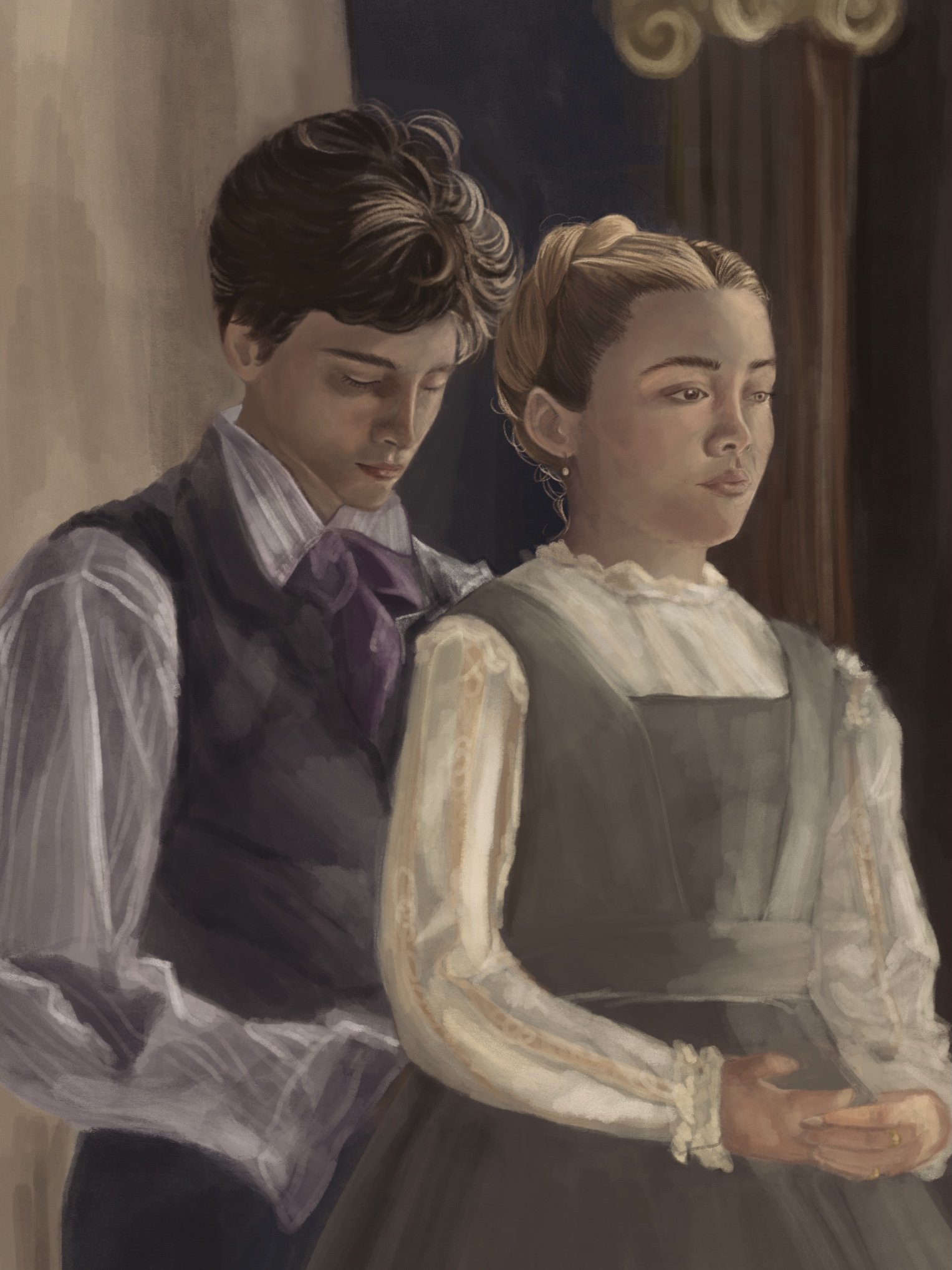Stop It, You’re Being Mean
Illustration by Jena Williams
I have always loved reading books and watching movies for the life lessons I learn through the experiences and insights of the characters. Living through others' adventures has helped me reevaluate my own actions and the ways I let others treat me. A movie that impacted me significantly is Little Women; it provided a new understanding of the word mean. From our earliest memories, we’ve been taught to treat others the way we wish to be treated. Unfortunately, we have no control over how others choose to treat us. Over the years, I’ve encountered mistreatment numerous times, but I have obediently responded with unwavering kindness. I recognize that not standing up for myself has encouraged my peers to treat me poorly. This epiphany was sparked by a pivotal scene in Little Women where Amy says, "Laurie, you're being mean." It has since become my favourite and most quoted movie line. In this scene, viewers watch - and share - Amy's heartbreak. Laurie, the boy she has loved for a lifetime, confesses his feelings for her despite harbouring feelings for her sister. Laurie's actions were hurtful and dispiriting, but Amy's resolve and courage deeply resonated with me. Her words have become a mantra, not only for my life but one I repeatedly share with my friends. Amy did not lash out or berate Laurie; she simply told him he was being mean.
You may wonder how someone professing their love could be perceived as cruel. Although Laurie’s intent was not cruel, his actions wounded Amy all the same. Amy had always loved Laurie despite knowing his heart belonged to her sister Jo. Amy moved to Europe to pursue her passion for art, but after Jo rejected Laurie, he followed Amy to Europe.
During my two years at university, I’ve heard countless stories of relationships and situationships, whereby actions and words don’t align. Many have experienced instances where they have been made to feel like someone’s second choice, felt trapped in connections that lacked respect, or were being continually led on. Hearing these experiences, I found myself wondering why people were being so mean to each other. In a pervasive era of hookup culture, young adult relationships are defined by ambiguity and poor communication.
The thing about situationships is that it's easier to fall for a person’s potential than the person themselves, causing confusion, miscommunication, and fear of rejection. So often in university we see casual relationships: two people hooking up, friends with benefits, where one person wants more. Once we develop feelings for others, we tend to bend our boundaries, fearing they might leave if we voice our true desire; resulting in a power imbalance. Anyone who has ever been strung along or made to feel second best can relate to the fictional moment between Laurie and Amy.
We are navigating our early twenties in an era of increasing technology and changing norms. Our generation has introduced new relationship tiers that our parents’ generation struggle to understand. The main concern with these new classifications is a lack of communication or clarity about each party’s wants or needs. When I say that university hookup culture is “mean”, I am not referring to cruel intent but to thoughtless behaviours and actions that significantly impact the well-being of others. Hookup culture fosters a culture of detachment and stunted communication. The lack of clarity, or murkiness, of casual encounters and unexpressed feelings leads to hurt feelings and disillusionment.
The first time someone told me they loved me, I felt they barely knew me. They believed they meant it, but they knew nothing about me. They were enamoured with the idea of love or commitment they had in mind, and although I didn’t show it, my feelings were hurt. The revelation felt starkly impersonal. At that moment, I was taken back to the scene between Amy and Laurie. Hearing someone tell you they feel one way but knowing they do not is hurtful and disheartening. As human beings, we make mistakes, but that does not make us evil. Despite our lack of malicious intent, we can still inflict emotional harm.
To anyone engaging in casual relationships, I urge you to be empathetic and discuss your expectations and boundaries. Most people don’t intend to be mean, but when feelings and pride are at stake, many ignore feelings, and choose to avoid deeper connections.
Edited by Cordelia Jamieson

